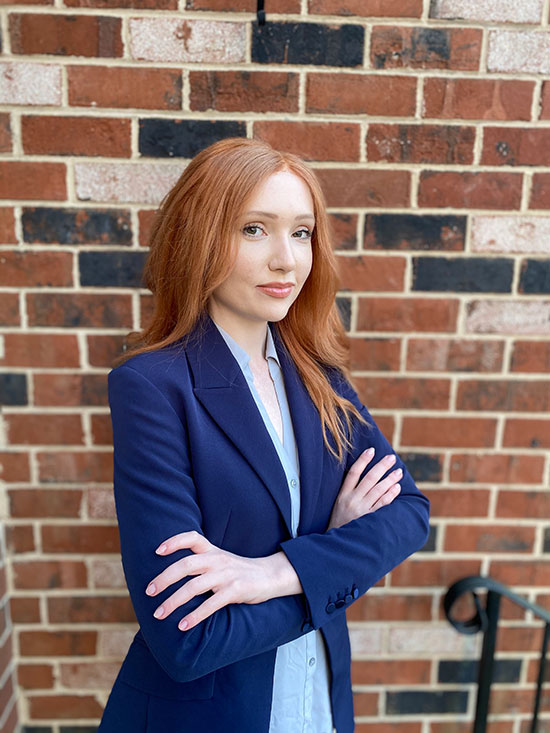College of Engineering and Computing alumna Mary Barthelson is taking her systems engineering and operations research knowledge to the political stage as she challenges Virginia district 36 state delegate Kenneth Plum in the Democratic primary election.
Barthelson has always had an interest in politics, but the past few years have opened her eyes to how she can contribute. “Technology has really gotten ahead of us in the past four years; I felt it was a really important time for people that have a technical background to get into politics.”
Barthelson graduated from Mason in 2014 with her bachelor of science in systems engineering and 2017 with her master’s in systems engineering, focusing on operations research.
“I chose operations research because there wasn’t one discipline in particular that I was interested in. I liked looking at things from a very high level to understand the big picture, and I think operations research fit that description the best,” she says.
And now, she wants to apply that big-picture thinking to Virginia state politics. “Systems engineering is the engineering of problem-solving. We learn to use data to work with stakeholders with a wide range of skill sets to design the best solutions to problems. So, I think that having an engineer’s eye to examine policies and communicate them between legislators and the public can help us avoid challenges that states have run into,” says Barthelson.
Currently, Barthelson works at M.C. Dean as a security engineer. She hopes to channel her knowledge to navigate a path for Virginia out of the current challenges the state is facing with technology. “We are seeing the negative effect technology can have on politics when they’re combined, and we need better laws to protect that,” she says.
She wants to address technology challenges, such as deep fake use in politics, the ubiquity of disinformation, and the shift to green energy.
Besides technology, she hopes to address the funding disparities in low-income schools and help low-income people get into the workforce. “I’m a problem solver. I’m always open to new ideas, and at the end of the day, solving the problem for constituents is what really matters,” she says.

